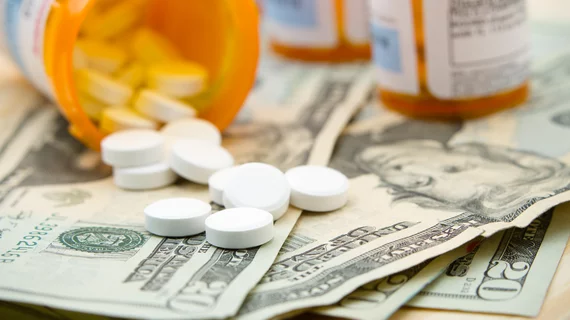Trump administration issues proposal for drug importation plan
The Trump administration, along with HHS and the FDA, have issued a notice of proposed rulemaking (NRPM) for a drug importation plan to allow certain drugs to be purchased from Canada. The plan is part of the administration’s overall agenda to lower drug prices.
The Trump administration first floated a drug importation plan in 2018, and came forward with its Safe Importation Action Plan in July. However, the new proposal excludes some drugs, including controlled substances, most biologics and intravenously injected drugs.
The latest announcement also makes available a new draft guidance for industry, describing the process for drug manufacturers to follow to import prescriptions drugs under certain circumstances.
“Today’s announcement outlines two pathways for the safe importation of certain prescription drugs to help provide safe, effective, more affordable drugs to American patients,” HHS Secretary Alex Azar said in a statement. “These are historic actions by HHS and the FDA, and they represent the bold nature of President Trump’s agenda for lowering drug costs.”
The plan has seen an onslaught of challenges, including opposition from the U.S. drug industry and a lack of support from Canada, which has been uncertain it can supply both countries with prescription drugs.
The NRPM allows states and some non-federal government entities to submit proposals to the FDA to import drugs under the program. Some of the specific conditions include ensuring the importation holds no risks to public health and safety while also achieving a significant reduction in the cost of covered drugs to Americans. Importation programs can be co-sponsored by a pharmacist, wholesaler or another state or non-federal government entity.
The FDA would authorize the programs, and the imported drugs must be FDA approved and be approved for use in Canada. The draft guidance also includes procedures for drug manufacturers to follow to obtain an additional National Drug Code for some FDA, approved drugs, including biological products, that were meant to be manufactured and marketed in a foreign country.
“The FDA continues to assess and act on multiple opportunities to promote competition that can, in turn, help reduce drug prices and improve access to medicines for Americans,” Assistant Secretary for Health Brett Giroir said in a statement. “The proposed rule and draft guidance include procedures intended to protect the public’s health and safety. … Our ultimate goal is to provide a robust program that clearly lays out procedures to import drugs that could provide lower prices while also maintaining the high quality Americans expect.”
The draft guidance allows for a 60-day comment period after publication in the Federal Register, and the NRPM has a 75-day comment period following publication.
See the NRPM here and the draft guidance here.

